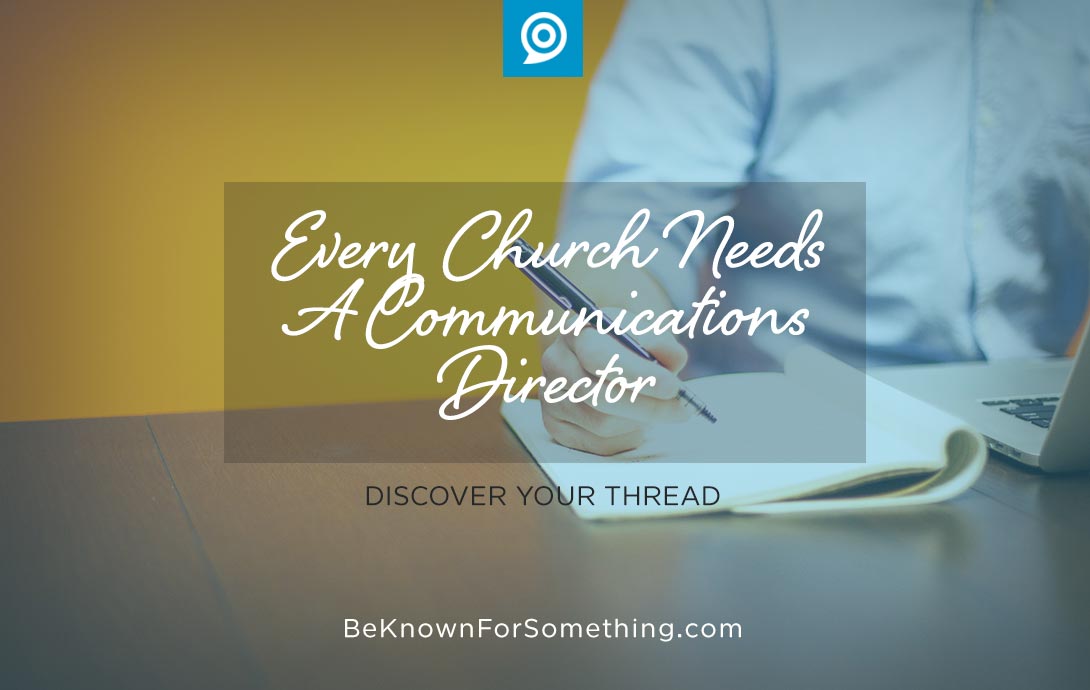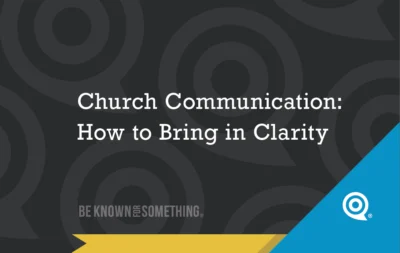3 Reasons Every Church Needs a Communications Director

When we started our church communication’s company 15 years ago, very few churches had full-time communication directors. We talked mainly to Pastors, Worship Leaders, Secretaries and Volunteers.
Now, many churches have a full-time dedicated person who’s committed to the communications of their local church. Finally! It’s not just the large churches either; we see medium-sized, and even small churches with directors of communication.
What’s changed? Why does a church need this role?
We believe most churches need a Communications Director.
We live in such a marketing-saturated world with so many mediums bombarding us from every direction. People demand content from websites, social media, email, print and broadcast. Everyone wants to know what’s going on (even if they don’t know it yet).
The Communications Director role is crucial since they must be aware of everything that the church is doing. Often, they know more than the Lead Pastor! They juggle every event’s information and create the content for every tool available.
Here’s 3 specific reasons your church needs this person:
- To be the brand keeper. They understand the brand palette (logo, color, font, positioning, etc.) and they’re responsible for the consistent use of every detail. If you’re not controlling these items, you don’t have a brand. Even pictures need their close eye to identify who has signed release forms and if the brand story is best told in the subject matter.
- To be an editor. The church is full of content (sermons, lessons, promotional blurbs, etc.) Your church needs someone who can find the material and edit it into attractive content. Short and concise. They ensure that the content is delivered correctly, timely, and is scannable.
- To be an advocate. Your church rises and falls on your audience — an internal audience (congregation) and an external audience (community). They need your church (even if they aren’t currently aware of it). As an audience advocate, this communication leader understands the complexity of ministry but balances the perspective of the audience. As this advocate, they defend what’s best for the community and congregation. They know the best way to reach them, what they’re desiring, and they are the voice for them in the followup meetings to determine if the event was truly successful.
For a busy church, this is impossible for a part-time person to accomplish. This person needs to empower ministry to happen, be pleasant to deal with, and be intently creative. They turn very little into a lot while taking a lot and transforming it into small palatable blurbs. They are worth every penny you pay them! Good communication helps a church grow and engage. That’s why so many churches have this person.
Want 25 Game-Changing Resolutions?
Related Posts

Church Communication: How to Bring in Clarity
In the new year, pastors often set goals. They want to grow attendance, launch new ministries, or strengthen discipleship. However,

Church Branding: Why Every Church Is Known for Something
Everyone is known for something, including your church. This is the heart of church branding. The real question isn’t whether

Church Welcome Video Tips Every Pastor Should Use
Your church welcome video is often the first message people experience before they ever step into your building. Long before

